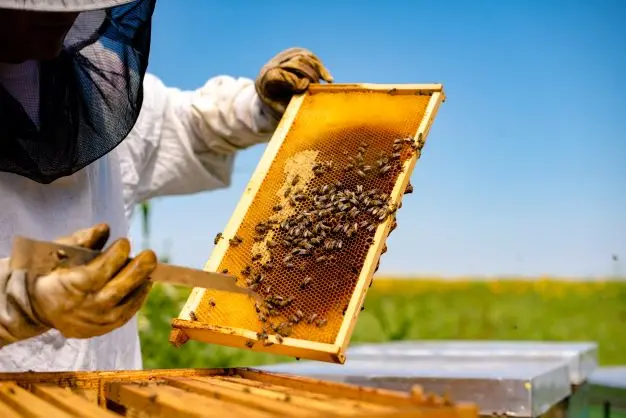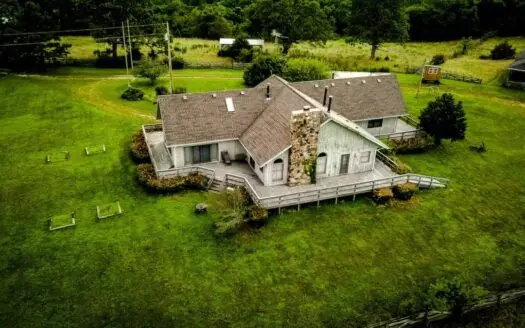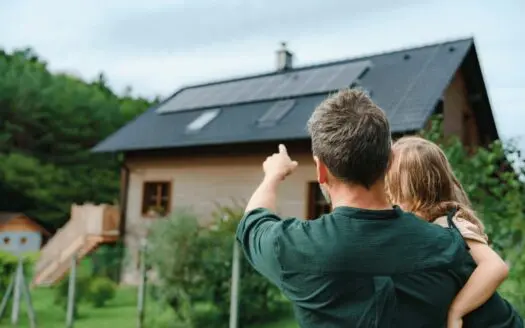The Buzz on Backyard Beekeeping
Honeybees are one of the single most important insects on the planet. They produce the only food on earth that includes all substances necessary to sustain life – honey. Packed with powerful antioxidants, honey works wonders to elevate a cough, asthma, ulcers, burns and allergies.
The greatest thing about honey? You can have it produced in the backyard of your own country home for minimal work and cost.
“The great thing about beekeeping is that everyone loves honey, unless you’re crazy that is,” said Michele Frisby, local beekeeper and creative director at United Country Real Estate. “The benefits to eating honey are amazing. I don’t produce enough to sell, but I love being able to give bottles away to friends and family and have some for myself.”
Having your own sweet, tasty honey is just a few steps away. We’ve broken down how to get started with some tips and resources.
Get educated. Frisby said you can learn a lot from books and the internet. YouTube has great videos about beekeeping. Books like “The Queen Must Die” and “The Backyard Beekeeper” are good places to start. Also, get involved with your local beekeeper’s association.
Get your gear. A short list consists of a bee suit, with hood and gloves. The beehive: boxes, bottom boards, covers and frames with wax foundations (this all runs around $100). A smoker, which is used to calm/sedate the bees, and a hive tool.
Buy your bees! If you are just beginning, the best bet is to order a “nuc,” which is a queen and a bunch of worker bees.
Check on your bees periodically. Check the hive every 2-3 weeks to make sure they have what they need. Sometimes after a long winter, they will need a little bit of food to stay alive until flowers start to open up. Quart jars filled with a solution of 1:1 sugar to water will work fine.
Harvest your honey. Twice a year you will need to scoop honey out of the honeycomb. Eat it just like that – honey and wax together – or extract the honey using a spinner and strainer. You can also scrape wax capping off and melt it down to create beeswax candles.
Now, enjoy your honey! Remember, the best time to start beekeeping is in the spring and it’s not a decision to just jump into.
“I spent a good two years researching everything I could find about it before finally getting up the nerve to purchase my first hive,” said Frisby. “But anyone not afraid of flying, stinging insects can do it. It’s a simple process and it doesn’t take up a lot of your time.”
Not into beekeeping? That’s ok. You can still do your part to keep the honey in our cupboards. Honeybees across the United States are declining rapidly. According to Frisby, dandelions are the most single most valuable early spring wildflower out there. They keep honeybees from starving after a long winter. Next time, think of the honeybee before yanking dandelions out by the root or spraying weed killer.
If you’re interested in beekeeping and need a little extra room to keep your hives, United Country Real Estate is here to help. We specialize in the sale of country homes and homes with acreage across the United States. Give us a call today at 800-999-1020.




